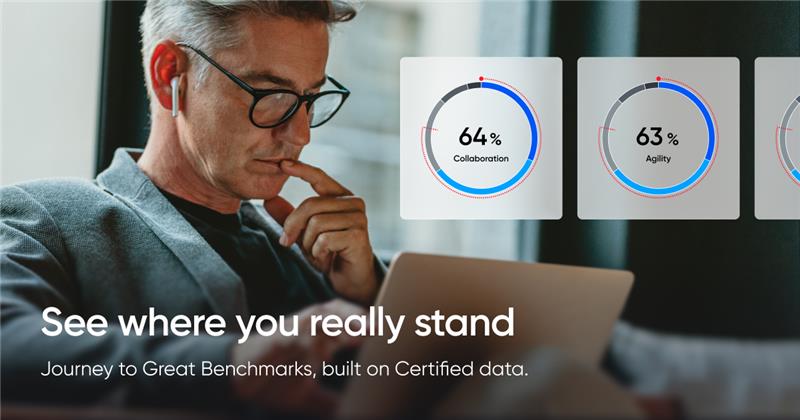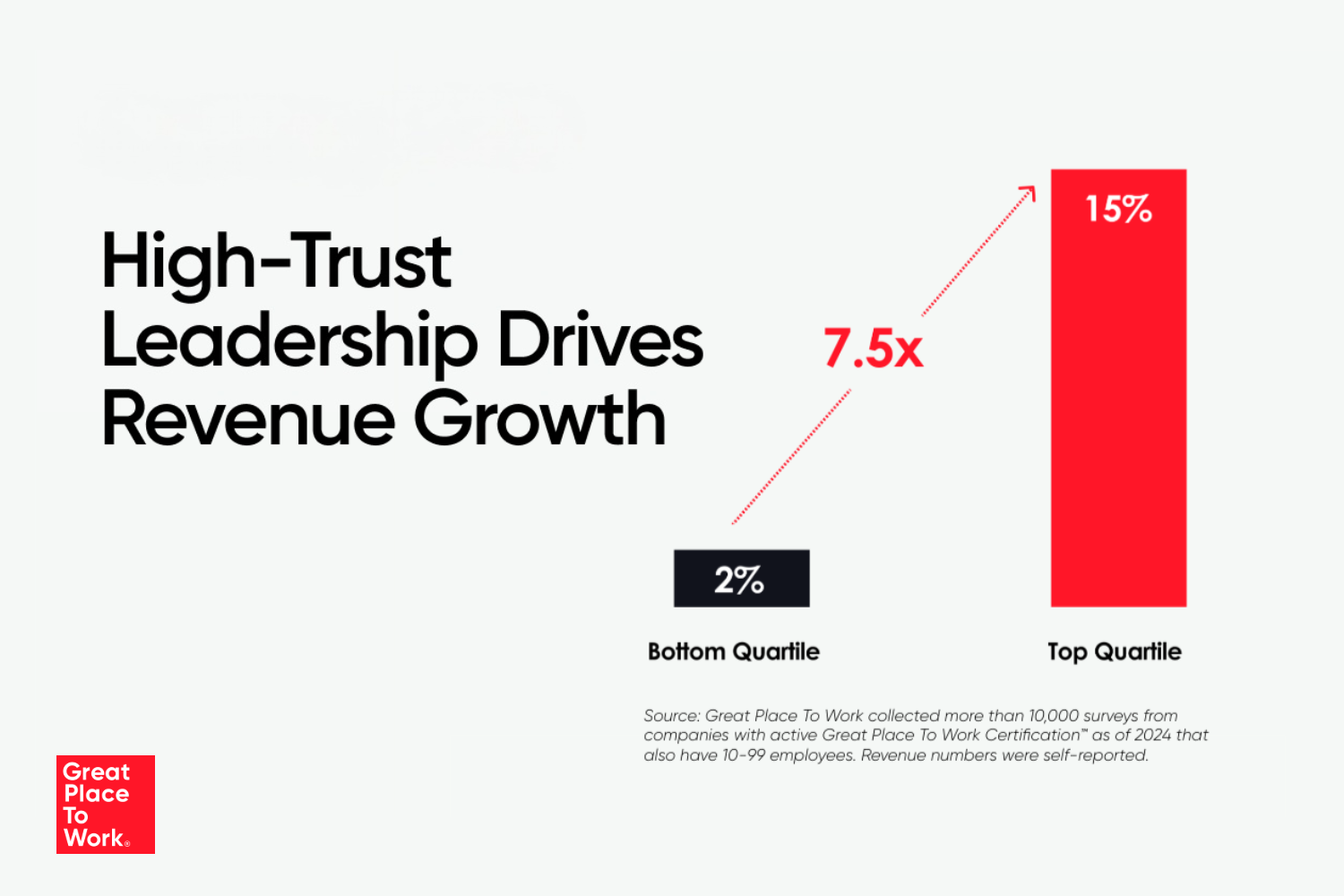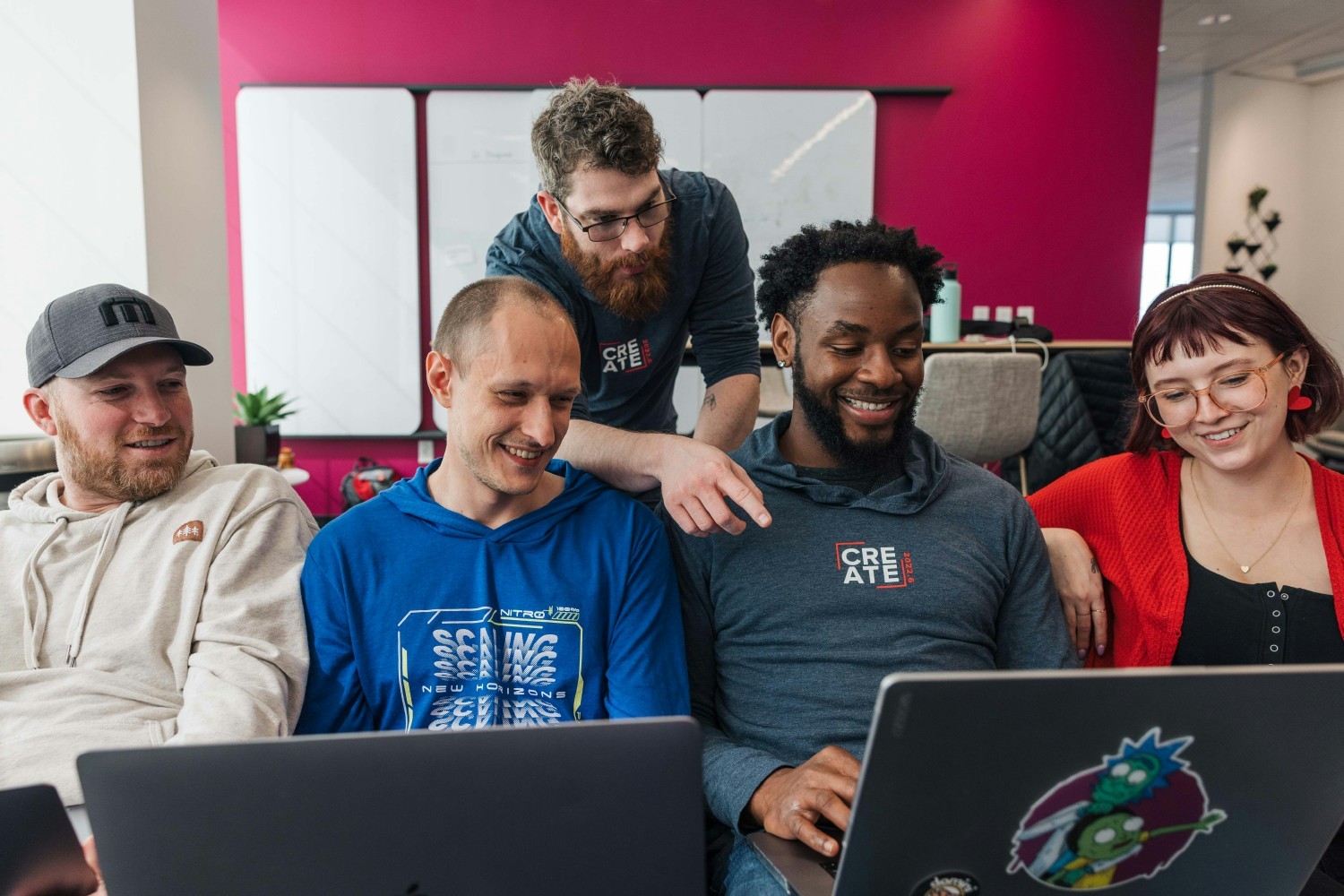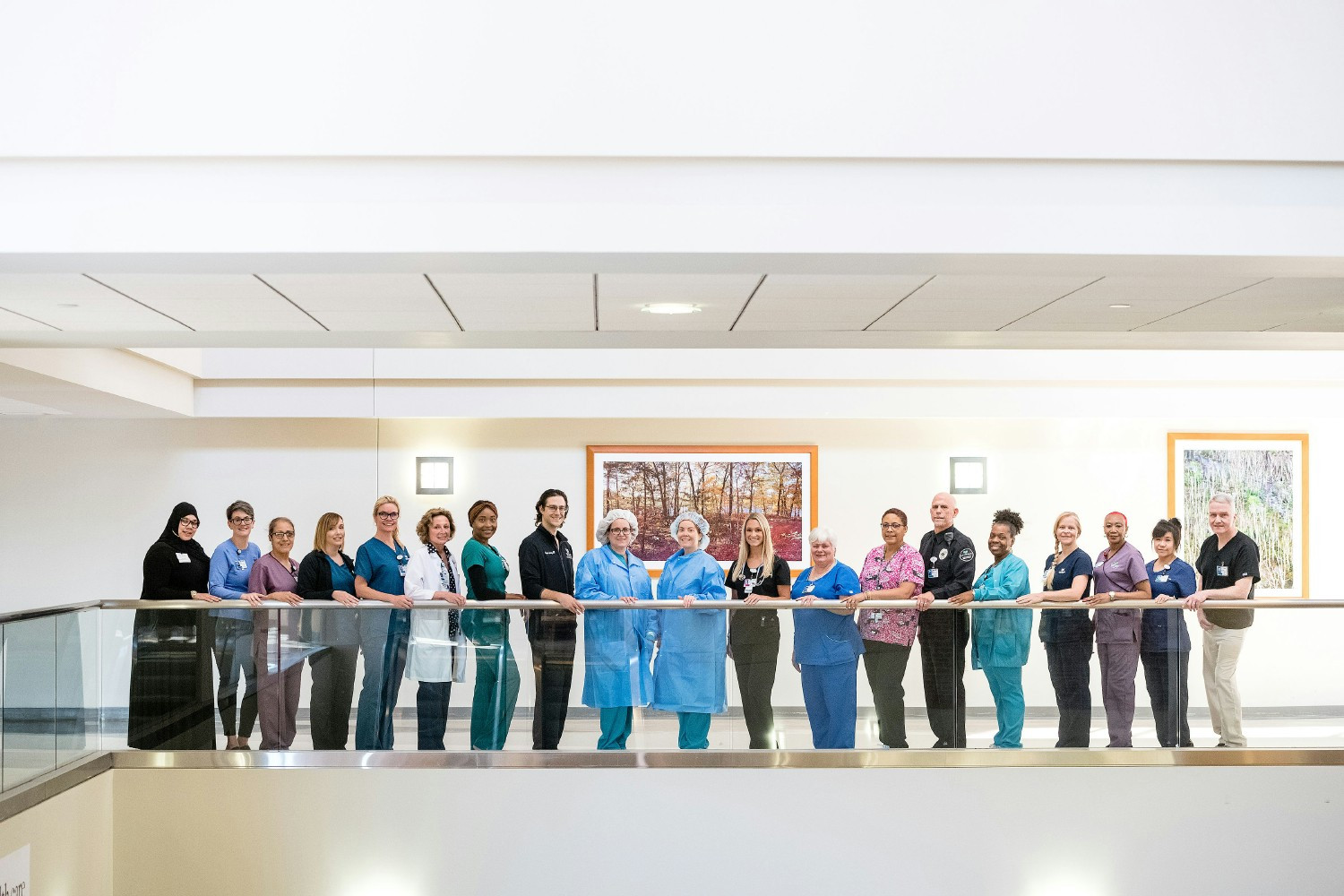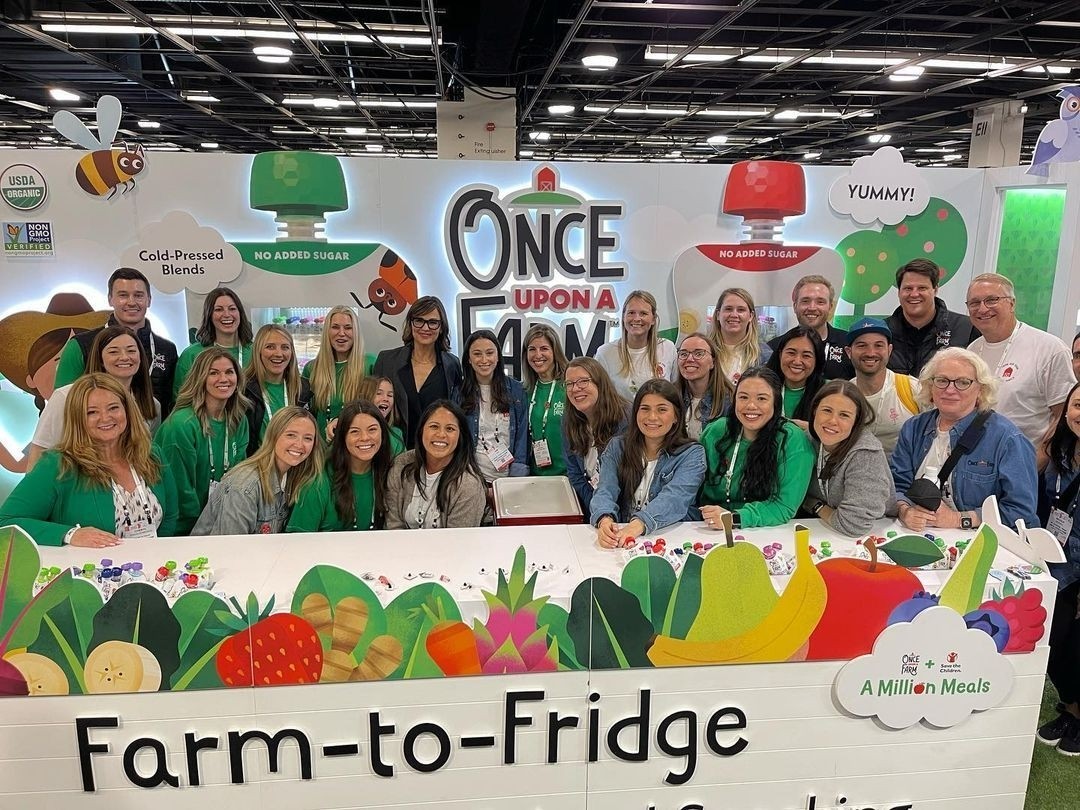Maintaining Company Culture, SMBs
Here’s how companies like Insmed and Chainguard, honorees on the 2025 Fortune Best Small and Medium Workplaces lists, are using talent to grow their business.
Talk to leaders like Dan Lorenc, CEO of Chainguard a tech unicorn now valued at $3.5 billion after its Series D raise, and one thing becomes clear: They are obsessed with culture.
“Culture's really interesting,” Lorenc says. “We talk a lot about it, but we can't really say what the culture is. We can only say what we want the culture to be.”
Instead, his guiding principle for the culture at Chainguard is “10 years from now, a group of employees get together that don't work here anymore, and they start talking about what it was like — that's really what the culture is.”
Employees have lots of positive things to say about their experience at Chainguard, No. 5 on the Fortune Best Medium Workplaces™ List in 2025.
A whopping 94% of employees say their work is meaningful and 100% of employees report giving extra effort. At a typical U.S. company of the same size, only 63% of employes say their work is meaningful and only 60% say they give extra effort.
One differentiator that makes Chainguard increasingly competitive: being a 100% remote workplace.
“Remote work has increasingly become a competitive differentiator in hiring,” Lorenc says. “As a lot of companies have started that return to office piece; we can hire the best people wherever they are.”
Insmed, a BioPharma company and No. 2 on the Best Medium Workplaces list, also sees remote work opportunities as a recruiting tool.
“We realized very quickly during the pandemic that we were able to tap into some of the best talent around the world because we were agnostic about where people sat,” says Nicole Schaeffer, chief people strategy officer at Insmed. That flexibility is now a permanent part of Insmed’s culture.
Investing in connection
As these companies have taken advantage of flexible work, they continue to invest in connection. At Insmed, new hires in the U.S. are brought together for a multi-day immersion program within the first few months following their start date.
The goal? “To learn more about every aspect of the business, and to spend some time exploring the culture,” Schaeffer says.
Despite the expense, Insmed plans to continue to invest in the program.
“People get up to speed faster; they understand the organization; they understand our values, our guiding principles, how we expect people to show up for each other,” Schaeffer says. At Insmed, 98% of employees say they receive a warm welcome when joining the company, compared to 76% of employees at a typical medium-sized U.S. company.
At Chainguard, everyone comes together two times a year for thoughtfully designed events to ensure cross-team connections and interactions occur. In addition to alignment and strategy sessions with leaders, employees also participate in hackathons or volunteering events. As the company has grown, bringing people together with intention has become more important, Lorenc says.
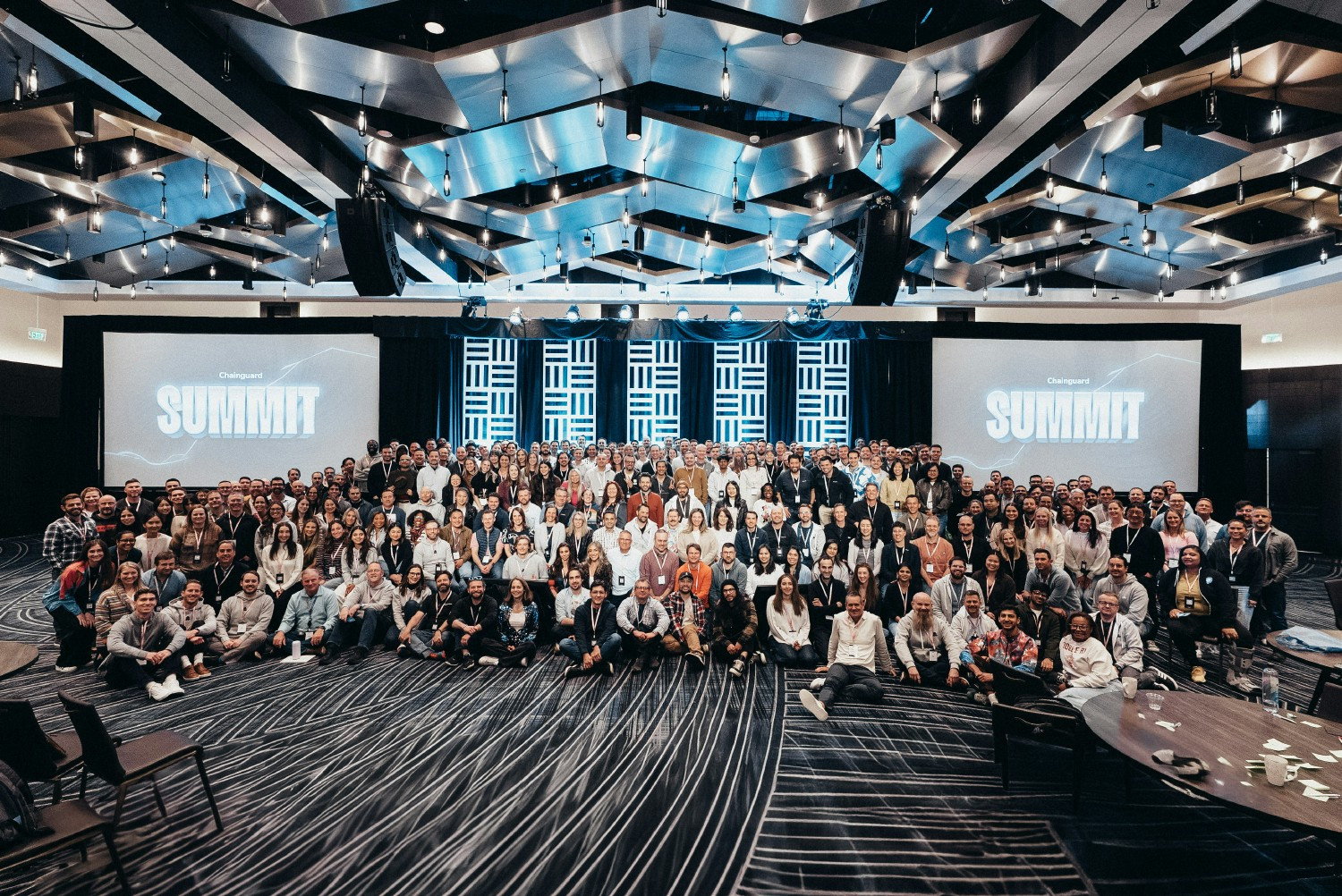
Despite being fully remote, Chainguard makes sure to bring employees together for company offsites to promote connection.
“We're too big for a single restaurant, so even when we go out to dinner, we pay attention to who’s going to which group and where they are sitting,” he shared as an example.
How does Chainguard think about the return on investment of bringing its 500-plus employees to an offsite twice a year?
“It's cheaper than an office,” Lorenc says. “Even if we had an office, we would still have to do stuff like this, and the results are great.” Chainguard tracks net promoter score and employee survey results to understand how these events connect with employees, making tweaks each year as the company grows.
“It's a different experience every time,” Lorenc says.
Employees' impact on business performance
Chainguard and Insmed both believe that great workplace culture drives business success — and both companies are experiencing enviable business results. Chainguard’s $3.5 billion valuation is built on a portfolio of high-profile clients, from Canva and HPE to Andruil. Insmed just earned FDA approval for its second drug, and looks forward to the continued growth of its pipeline — results that show up in impressive stock market growth over the past year.
Both companies say their success is due to the tenacity and talents of their employees.
“This business is all built on the fortitude, the drive, the passion that our employees have to do something novel and different for patients,” Schaeffer says of the biopharma industry. “I'm a firm believer if you get the two Ps right — I call it the patient and our people — anything is possible.”

Insmed's committed workforce has driven the company to crucial breakthroughs like the recent FDA approval of its second drug.
Lorenc agrees. “We would not be where we're without our employees,” he says.
For other companies looking to build an award-winning culture, Lorenc and Schaeffer offer some simple advice:
1. Treat people like adults
“Because we treat people with that level of respect and professionalism, we get a whole lot back in spades,” Schaeffer says.
2. Be clear with employees about expectations
“Hypergrowth is not easy, and everybody has to know that and acknowledge that on the way in,” Lorenc says. Life in a startup isn’t for everyone, so clarity about expectations is key.
3. Make your feedback loops as tight as possible
When you are growing fast, it’s easy for things to fall off your radar, Lorenc warns. That’s why his team runs anonymous pulse surveys after every all-hands meeting, holds regular listening sessions with different departments and role levels, and checks Great Place To Work data results.
“I'm spending at least an hour a week hearing what's working, what's not working, and taking all of that in and figuring out what changes we want to make,” Lorenc says.
4. Make culture everyone’s responsibility.
Everyone has a role in creating a great workplace culture, Schaeffer says. “We have to interview for it, we hire for it, we make sure that people are accountable to it and are showing up for each other and demonstrating the culture and living the values every single day.”
Want to make the Fortune Best Small and Medium Workplaces lists next year? Start here.
Transform culture into business success
Let our Great Place To Work® Model guide your culture to drive performance. Start your journey with Great Place To Work today.




